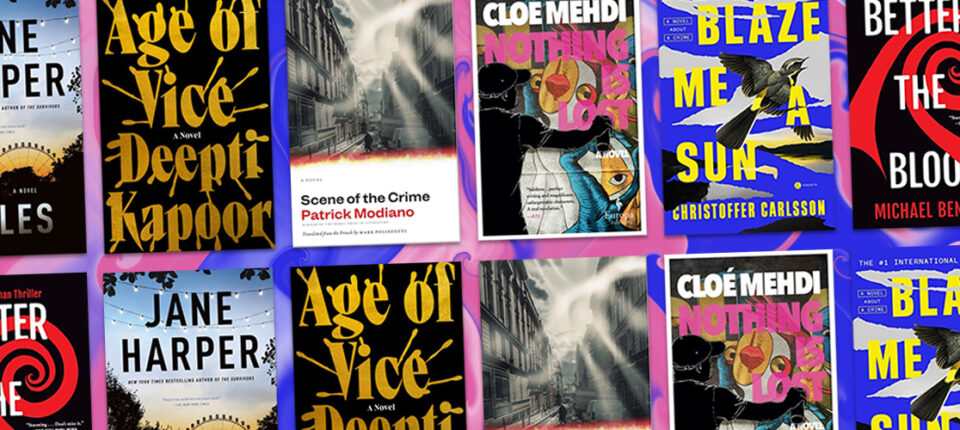The CrimeReads editors select the month’s best new international crime fiction.
*
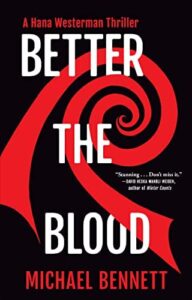
Michael Bennett, Better the Blood
(Atlantic Monthly Press)
Michael Bennett is a much-lauded Maori screenwriter and director, and this, his debut, brings his skills of storytelling to a new medium and introduces a compelling new heroine. Hana Westerman is a Maori CID detective with a rebellious teenage daughter, uncooperative colleagues, and now a truly puzzling case—someone’s been killing the descendants of a group of men responsible for an early 19th-century lynching, and it’s up to Hana to track them down while proving herself once again to her department. –MO
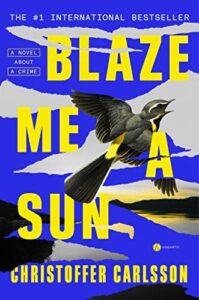
Christoffer Carlsson, Blaze Me a Sun
Translated by Rachel Willson-Broyles
(Hogarth)
Sweden’s latest crime fiction sensation is a novel of keen insights, sharp observation, and a penetrating sense of humanity. Spanning decades, Carlsson tells the story of the fruitless hunt for a serial killer and the possible connections to the murder of the country’s prime minister. The procedural mystery is itself satisfying, but where Carlsson really excels is in balancing the dark and satisfying atmospherics with a sense of longing just beyond reach. –DM
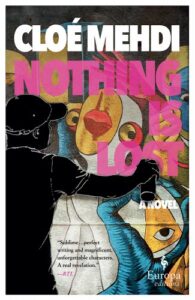
Chloé Mehdi, Nothing Is Lost
Translated by Howard Curtis
(Europa)
This pitch-dark French noir explores the aftermath of violence and the questions still unanswered in the wake of a teen’s murder by police. 11-year-old Mattia spends his days emotionally managing the adults around him, trying to keep his teachers from realizing he’s gifted, and thinking hard about the murder of 15-year-old Said during a police identity check. As he considers the life and death of Said, he puts together the larger puzzle of oppression in the heavily policed suburbs. Mehdi’s writing conjures the best of French noir, and reminds us why the French named the genre. –MO
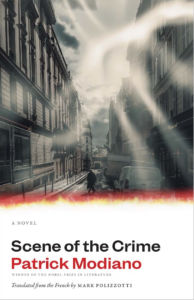
Patrick Modiano, Scene of the Crime
Translated by Mark Polizzotti
(Yale Univ. Press)
Scene of the Crime is, like other Modiano works, an interrogation of the past and of time itself. A young man finds himself the subject of interes by a shadowy band of strangers with ambiguous connections and motivations. It has something to do with his past, and perhaps with the strange ‘family’ he found himself marooned with for a time in his youth, but what exactly? Modiano’s prose is mesmerizing as ever, translated into English by Mark Polizzotti. The story plays out with the intrigue of a good noir, with an unsurpassed depth of feeling and curiosity. –DM

Deepti Kapoor, Age of Vice
(Riverhead)
Damn, this book is good. And so epic. Like Renoir’s Rules of the Game, this is a perfectly crafted portrait of the moral degradation of the wealthy, as parties and profits grow to replace right and wrong in the minds of the characters. The story is told through three main points of view: Ajay, the servant whose loyalty will prove his undoing, Sunny, the uber-rich addict who wilts under his father’s expectations, and Neda, a journalist who finds herself inextricably entangled with the subject of her own assignment. The ending is shattering. Actually, this whole book is shattering. So instead of watching that colonialist POS known as Shantaram, read this book instead. –MO
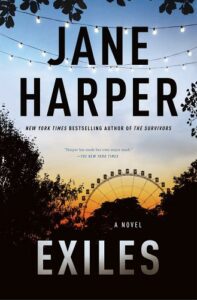
Jane Harper, Exiles
(Flatiron)
Exiles is a gripping thriller, but even more than that, it serves to remind us of that which we already know, which is that festivals are bad. If there is a festival in a novel, a bad or creepy thing is going to happen there! It just is! Trust me! Federal Investigator Aaron Falk is on vacation in Southern Australia when he learns that there, one year before, a mother and her baby disappeared during a town festival and have never been seen since. At the plea of the woman’s older daughter, Falk and his friend Raco find themselves investigating what happened that fateful night, among the crowds. At the festival. –OR

